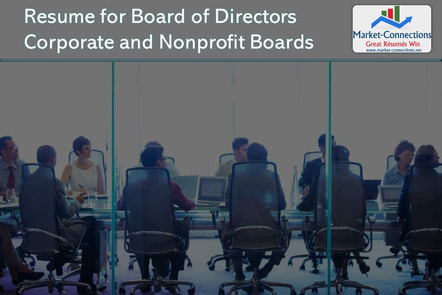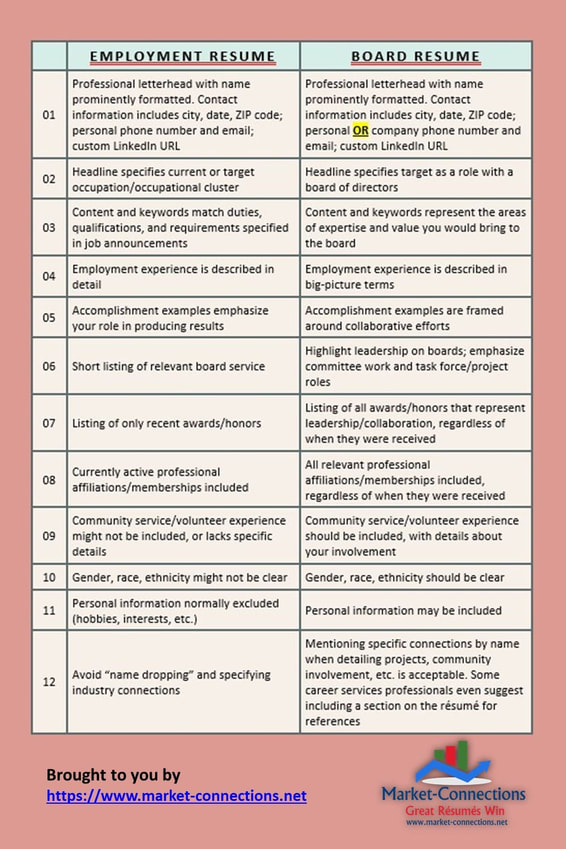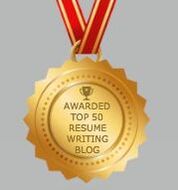|
When asked for a resume for a board position, you might wonder how it's different from a job resume. Writing a resume for a board position requires understanding your target audience. Whether corporate or nonprofit, industry-specific, or skill-focused, knowing how board members are recruited and what they seek is key. Tailor your resume's tone, content, and keywords accordingly. Let's explore the essential elements for an impactful board position resume. Corporate or Nonprofit BoardBefore examining the similarities and differences between the two types of boards, first keep in mind the overarching differences between corporations and nonprofit organizations.
Whether the board oversees a Fortune 500 company, another type of for-profit company, or a nonprofit organization, there are more similarities than differences. Every board has written articles of incorporation, bylaws, and governing principles that outline the responsibilities of the board of directors. Standard board policies cover member independence, conflict of interest, conduct/ethics code, expectations, confidentiality, and indemnification. Taking the time to familiarize yourself with these when targeting a specific board of directors will help you formulate your resume strategy. Both for-profit and nonprofit boards have a responsibility to approve, remain current with, and oversee the organization’s strategic plan, putting considerable emphasis on strategic thinking as a desired skill in filling board seats. Because they generally have a higher level of participation in developing the plan from its initial stages, members of nonprofit boards and start-up companies often serve on one or more strategic planning committees. Overseeing the financial wellbeing of the organization they represent is a primary responsibility of corporate and nonprofit boards; however, there are some key differences. Corporations have an obligation to deliver a financial return to stakeholders; therefore, corporate boards are focused on net earnings, stock prices, and dividend rates. Although many nonprofit organizations have turned their attention toward building and managing investment portfolios, they still rely heavily on fundraising. Because of this, nonprofit boards have a different focus in how they operate, and they consider a member’s net worth or ability to financially support the organization as essential to fulfilling their mission and goals. Bringing in a variety of perspectives, backgrounds, and experiences can be key to an organization’s success. Whether the board is a for-profit or nonprofit, board member diversity (e.g., gender, socio-economic background, race, religion, and nationality) has become a high priority. Boards strive to mirror the demographic of their customers/clients and meet the interests of their regulators and stakeholders. All boards have an obligation to serve as ambassadors for the organization they support, educating influencers and the community about the importance of what they do. And all boards face the same key challenges — rapidly changing technology, market competition, regulatory restrictions, limited resources, and finding and retaining good people. Just as a jobseeker’s resume must illustrate an understanding of these challenges and the candidate’s ability to address them, a resume for a board of director candidate must do the same. Board Selection ProcessBefore we begin looking at the structure and content of the resume, it is helpful to know who will be reviewing the resume, and what they are looking for. For-profit board searches are often conducted by executive search firms, like Spencer Stuart or RSR Partners. Typically, a nominating and governance committee will work with the recruiter to discuss their needs and identify board candidates. The company CEO — and possibly the entire board — will interview and select finalists. Th competition for a spot on a corporate/for-profit board is always fierce. Since for-profit companies have an obligation to deliver a financial return to shareholders, they seek board members with experience starting, running, and growing successful businesses. Expertise in a specific area of operations — such as finance, mergers & acquisitions, or legal — may also be desirable. BoardProspects.com, an online community and recruitment platform for existing and prospective board members, is a reputable source for gaining insight on what companies look for and learning about the skills and backgrounds of existing board members. To get a feel for what a specific publicly traded company looks for, it is also helpful to read their annual proxy statement. With the exception of large, high-profile organizations — like AARP or the American Red Cross — there is far less competition for nonprofit board positions. Like for-profit boards, they look for members with a wide range of skills, but they also want people with expertise in running nonprofit programs, managing community relations, and facilitating fundraising initiatives. BoardWorks has characterized the board selection process as more complex than selecting a job candidate for a management position. When recruiting for a management position, a company is looking for someone with an identifiable skill set to fill a well-defined slot in an organizational chart. By contrast, board appointments tend to be something of a jigsaw puzzle in which the final picture is not crystal clear and can be assembled in many ways. The challenge is to find someone to appoint on their merits who will also fit into and complement an existing boardroom team. BoardWorks states in one of its newsletters that “a particular challenge for selection panels is evaluating applicants who can strengthen the board in ways that were not anticipated before the recruitment process commenced.” Both for-profit and nonprofit boards are legally obligated to follow their bylaws, which may include specific criteria for board size, structure, and composition. Beyond what is specified in the bylaws, the board selection process often involves a more or less formal version of a grid by which to assess and rank candidates. Knowing what is included in this grid will certainly help in knowing what to emphasize on the resume. BoardSource, a Washington, D.C.-based organization dedicated to building strong nonprofit boards, created a board recruitment matrix that breaks down a candidate’s areas of expertise, leadership qualities, access to a variety of resources, network/connections, as well as personal style, age, gender, race, and ethnicity. Similar matrices can be found online for assessing for-profit board member candidates. In an infographic entitled What Makes a Good Board Member?, BoardSource identified these six characteristics:
At the top of this list for both corporate and nonprofit boards is the ability to get along well with others, combined with a high degree of self-awareness, and emotional intelligence. Planning Your Resume ContentNow that you know a little more about the type of board you are targeting — corporate or nonprofit — and what criteria go into the selection process, you can begin planning what to include in your resume and how to present it. Identify your areas of expertise and how they might benefit your target board. Both corporate and nonprofit boards have a need for members with executive resumes whose experience and expertise fall within the following areas: budgeting and finance, human resources, technology, strategic planning, risk management, succession planning, legal, compliance, marketing, public relations, and consensus building. Experience within the same or similar industries, and insight about customer/client needs is also essential. And both types of boards value members who have access to a variety of resources (government connections, attorneys, accountants, consultants). Corporate boards also look for global experience and expertise in matters such as mergers and acquisitions, research and development, IPOs, shareholder proposals, and investments. A few terms that are commonly heard in corporate boardrooms — and that you’ll want to consider including as keywords in a corporate board resume — are earnings per share, EBITDA, quarterly returns, stock buyback, real estate transactions, Sarbanes-Oxley, and Dodd-Frank. On the other hand, nonprofit boards seek members whose expertise may include grant writing, fundraising campaigns, donor relations, endowments, 501(c)(3) applications, and volunteer management. Some of the keywords that you’ll want to include in a nonprofit board resume are donor capacity, donor relations, restricted/unrestricted gifts, pledges, stewardship, community education, foundations, and capital campaigns. Keywords representing personal style that belong in both corporate and nonprofit resumes include consensus builder, collaborator, motivator, strong communicator, and diplomatic. Although you want to draw attention to your contributions and accomplishments, avoid language that suggests you single-handedly brought about results. Whereas the content and tone of a jobseeker’s resume is geared toward promoting the candidate and, ideally, elevating his or her career, the president and CEO of BoardSource made the distinction in tone and content clear in the following statement: “When you join a board, what you are really saying is that you agree to put your personal interests and ambitions in the background. You are there to best serve the interest of the company or organization.” Constructing the ResumeThe overall format of your board resume is not that different than your job search resume; however, sections that are considered optional or secondary to actual work experience have more credence when positioning yourself for a board of director’s role.
Target: Board of Directors — Commercial Banking & Finance Financial Analysis | Mergers & Acquisitions | Audits
In her article, Boardroom Bound? Ten Steps to Get You There, Kay Koplovitz nicely summarizes the key points:
Differences Between a Board Resume and an Employment ResumeAbout the AuthorMandy Fard is a Certified Professional Resume Writer (CPRW, CMRW) and Recruiter with decades of experience in assisting job seekers, working directly with employers in multiple industries, and writing proven-effective resumes. |
Categories
All
powered by Surfing Waves
AuthorMandy Fard is a Certified Professional Resume Writer (CPRW, CMRW) and Recruiter with decades of experience in assisting job seekers, working directly with employers in multiple industries, and writing proven-effective resumes. Archives
July 2024
|
-
Greater Los Angeles
and Kern County
-
[email protected]
.





 RSS Feed
RSS Feed



